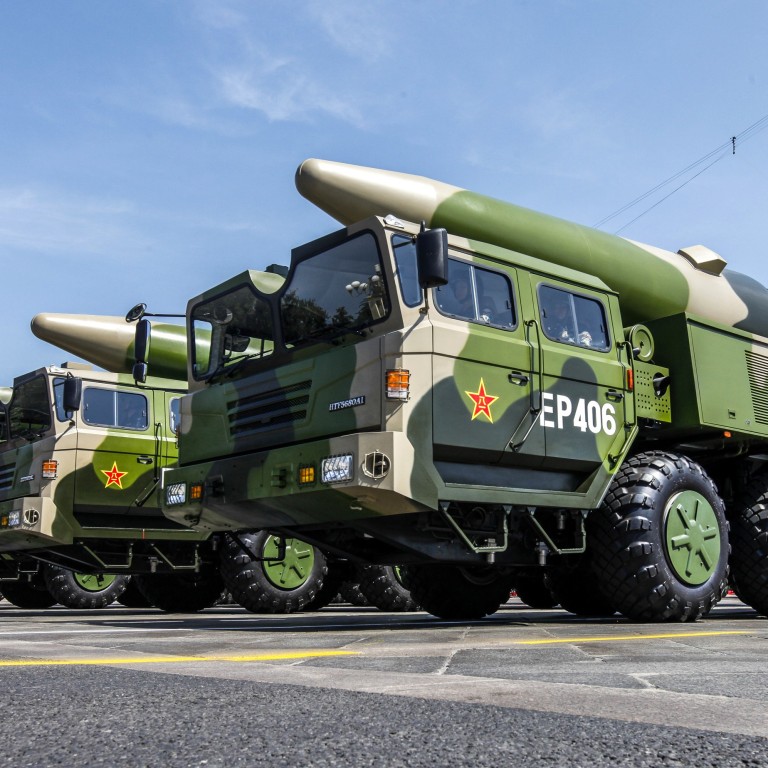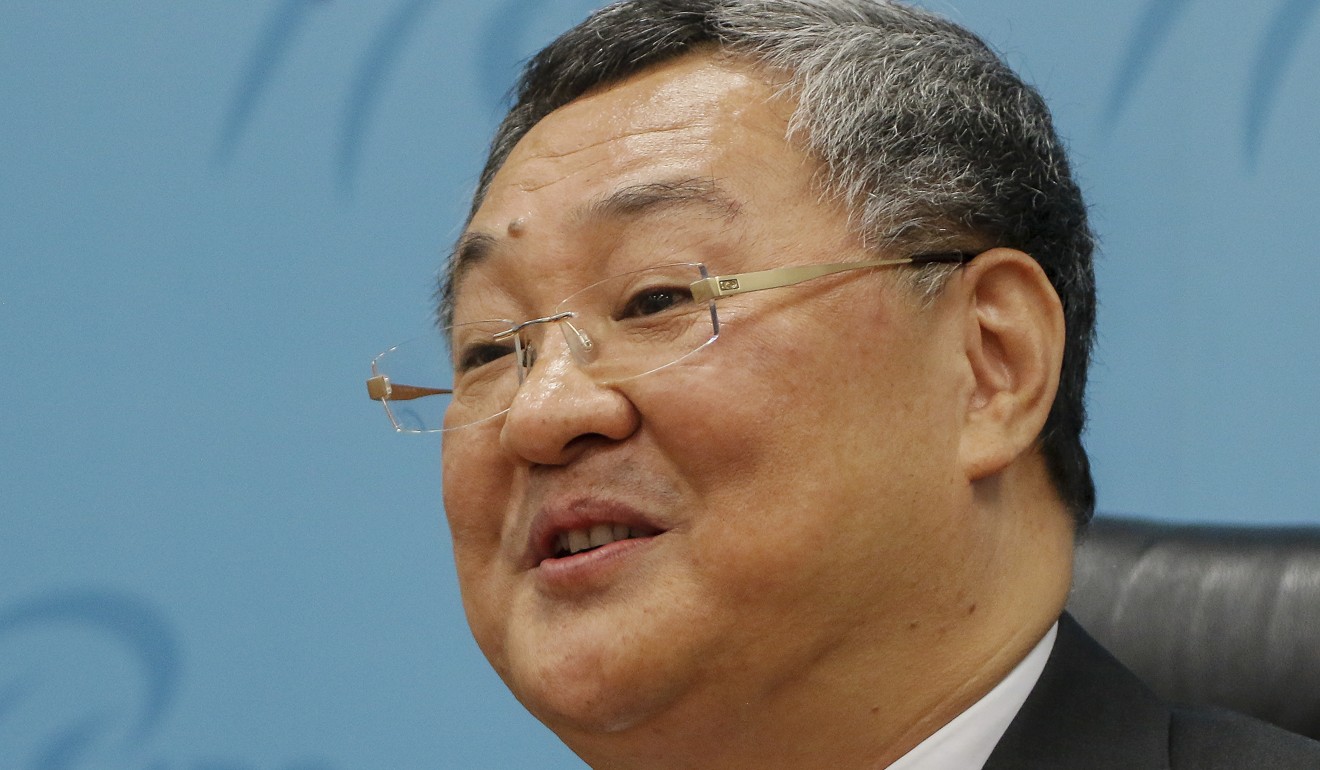
China will not ‘stand idly by’ if US proceeds with Asian missile plans
- Senior foreign ministry official advises South Korea, Japan, Australia in particular not to host intermediate-range weapons
US plans to deploy intermediate-range missiles in the Indo-Pacific region would be met with Chinese countermeasures, according to a senior foreign ministry official on Tuesday.
Fu Cong, director of the ministry’s arms control department, said China was particularly concerned about the plans, announced by US Secretary of Defence Mark Esper at the weekend, to develop and test a land-based intermediate-range ground based missile in the Asia-Pacific “sooner rather than later”.
Fu’s remarks followed last week’s withdrawal by the US from the Intermediate-Range Nuclear Forces Treaty (IRNF) which, he said, would have a “direct negative impact” on global strategic stability, as well as security in Europe and the Asia-Pacific region.
The US withdrawal was swiftly followed by Esper’s assertion, at the start of a week-long tour of Asia, that he wanted to deploy mid-range conventional missiles in the Asia-Pacific within months. Australia previously said the locations for the bases were not yet known, but it would not be one of them.
Defence chief: US to deploy new missiles in Asia to counter China’s rise
Esper also confirmed that Washington wanted to deploy new intermediate-range missiles in Asia, something it would not have been able to do under the terms of the IRNF, signed by Russia and the US in 1987. It expired on Friday, with Washington saying it withdrew because of Russia’s alleged violations of the pact. Russia denies breaching the terms.
“China will not stand idly by and will be forced to take countermeasures should the US deploy intermediate-range ground-based missiles in this part of the world,” Fu told reporters at a specially called briefing.
He also advised other nations, particularly South Korea, Japan and Australia, to “exercise prudence” and not allow the US to deploy such weapons on their territory, saying that would “not serve the national security interests of these countries.”
Fu said China had no intention of joining nuclear weapons reduction talks with the US and Russia, pointing to the huge gap in the size of China’s arsenal compared to those of the other two. China has an estimated 290 nuclear warheads, compared to 1,600 for Russia and 1,750 for the US, according to the Federation of American Scientists.
Russian President Vladimir Putin has called for urgent arms control talks to prevent a chaotic arms race following the treaty’s demise. He also said on Monday that Russia would only deploy new intermediate-range missiles if the US does.
US, Russia rip up cold war-era nuclear missile treaty
China has already shown “maximum restraint” in developing its arsenal and stuck to its policy that it would not be the first to use a nuclear weapon in a conflict, Fu said.
“I don’t think it is reasonable or even fair to expect China to participate in an arms reduction negotiation at this stage,” he said, but added that China remained committed to multilateral efforts to reduce nuclear stockpiles such as the UN’s Comprehensive Nuclear-Test-Ban Treaty, although it had yet to ratify that agreement.
Fu would not elaborate on what countermeasures China was considering taking against the US, saying only that “everything is on the table”. He did say China had never – and would never – take part in a nuclear arms race.
Nor would he say how China might retaliate against countries that hosted US land-based intermediate-range missiles, although China has in the past used economic means to retaliate against South Korea over its deployment of the US anti-missile defence system known as THAAD.

Fu dismissed US arguments for leaving the INF as “pure pretext”, saying Washington was merely looking for an excuse to develop new weapons. If the US truly believed Russia was cheating on the treaty, he said, than the way forward was to negotiate rather than withdraw.
Meanwhile, Washington’s argument that it was threatened by China because 80 per cent or more of Chinese missiles fell into the intermediate-range category did not hold up, since those missiles would be unable to reach the continental US, Fu said.
“So the US would be the least to worry if that was the case. That shows that all of this is nothing but a pretext.”
There are rising doubts about whether the US and Russia will extend an agreement on long-range nuclear weapons, scheduled to expire in 2021, known as New START. US President Donald Trump said he had been discussing a new agreement to reduce nuclear weapons with China and Russia.
“And I will tell you China was very, very excited about talking about it and so was Russia”, Trump told reporters. “So I think we’ll have a deal at some point.”
Asked about Trump’s comments, Fu said he did not wish to contradict Trump, but repeated that China had “no interest and, frankly, we don’t think we are even in a position to participate in a trilateral negotiation aimed at a nuclear arms reduction”.

